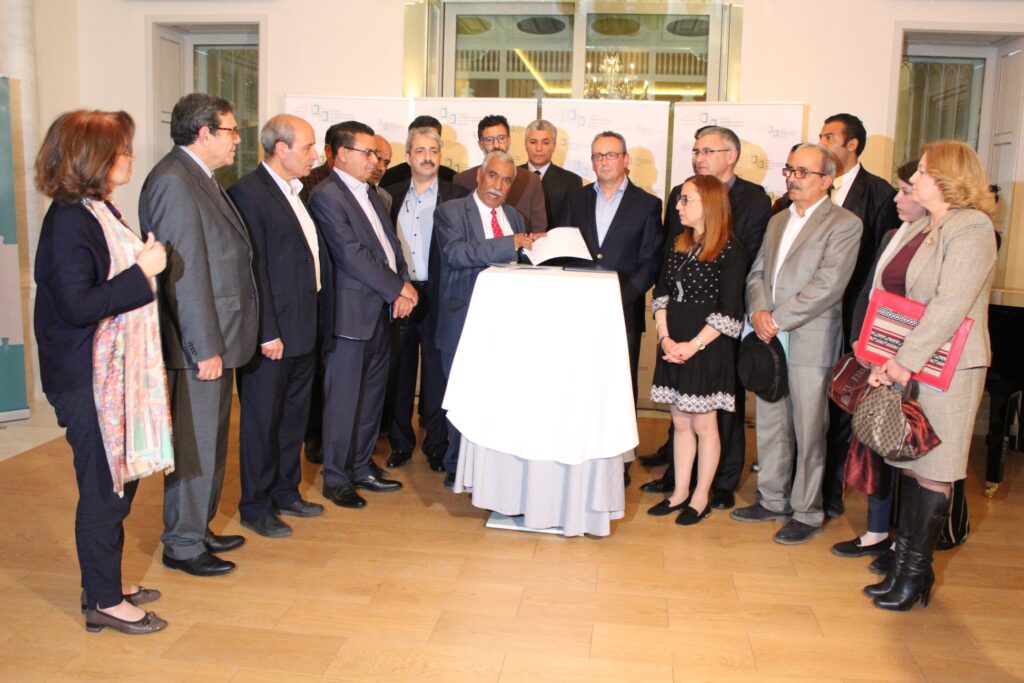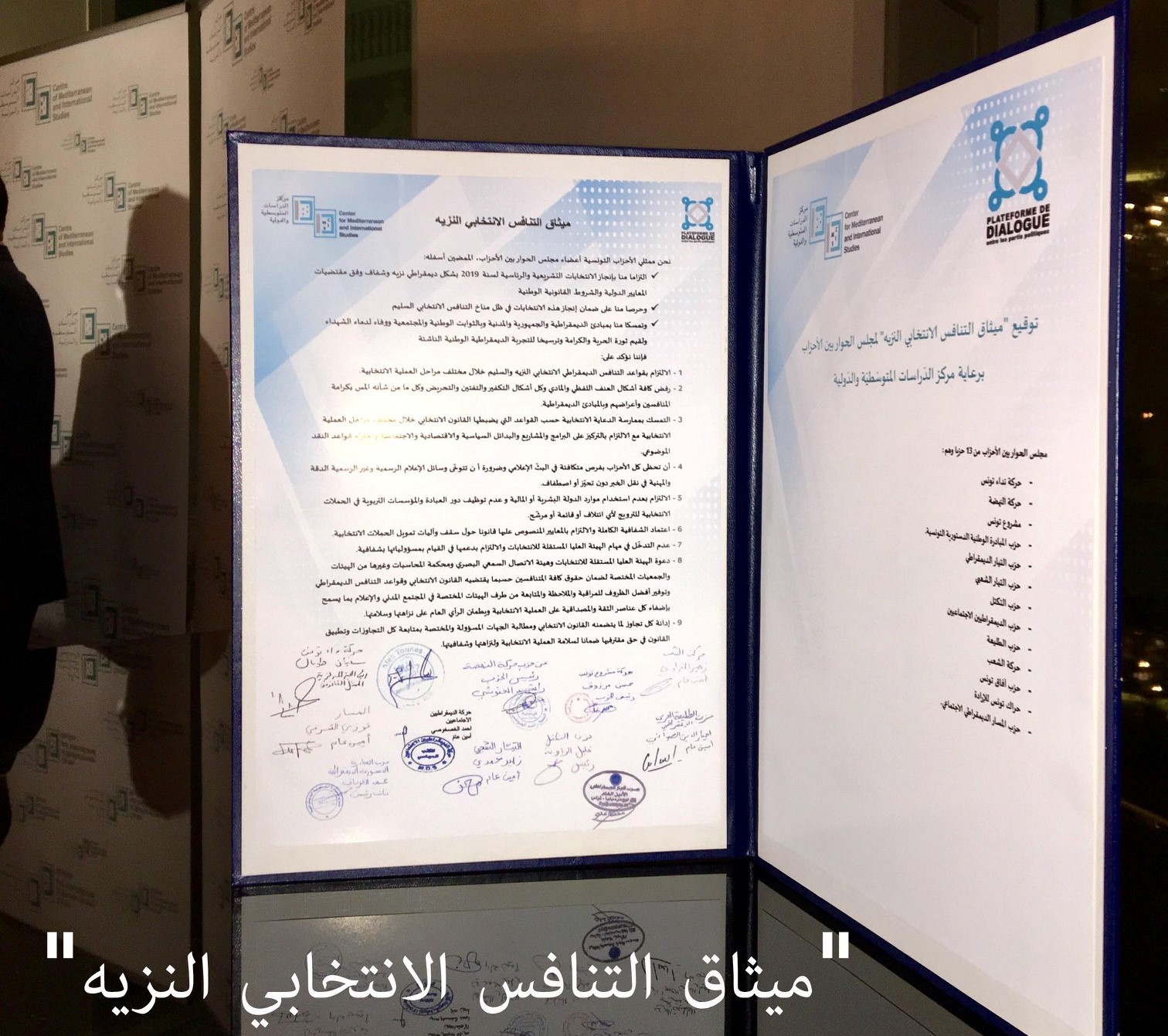Tunisian Parties Sign Charter for Loyal Electoral Competition

2019 is an important year in Tunisian politics, with voters set to elect a new National Assembly and President in October. Ahead of this, its essential that parties all know the rules of the game and adhere to democratic principles. Without this precondition, prospects for Tunisia’s democratic future are put at risk.
Since 2016 NIMD’s partner, CEMI Centre des Etudes Méditerranéennes et Internationales Tunisie (CEMI), has hosted a dialogue platform for Tunisia’s political parties, which meets regularly to discuss political developments and foster trust between the parties. Ahead of this year’s elections, a series of special interparty dialogue sessions have been convened by CEMI to help create a level playing field and foster mutual respect between Tunisia’s political parties during the elections.
At the end of May, 12 of Tunisia’s largest parties, including Mashrouu Tounes, Nidaa Tounes, Ennahdha, Afek Tounes, and the Courant Populaire Party came together to sign the document that came out of that dialogue: The Charter of Loyal Electoral Competition.

As well as serving as a basis for party conduct during the elections, the Charter also serves to consolidate the culture of dialogue and create a transparent and democratic political environment between electoral cycles. The points in full are:
- To be committed to the rules of the democratic electoral competition during the electoral process;
- To refute all forms of violence or any other irreverent behavior towards candidates that is against democratic principles;
- To be committed to the electoral campaign rules settled by electoral law and to focus on their programmes, projects, and political, economic and social alternatives;
- To endeavour to respect the principle of fair media coverage and equitable access to all political parties;
- To not use state resources during the election campaign, entailing the impartiality of the administration and religious and educational institutions;
- To operate with complete transparency while financing their electoral campaign;
- To be committed not to intervene in missions carried out by the High Independent Election Authority (ISIE) and to support its transparency throughout the electoral process;
- To impel the High Independent Election Authority (ISIE), the Audiovisual Communication Authority, the Court of Accounts and the concerned bodies/institutions to work collaboratively to ensure contestants’ rights and the best possible conditions for the observer delegation, according to the electoral laws and the rules of the democratic competition for credible elections and to build public confidence in the process;
- To report every rule violation and fraudulent activity to the relevant authorities to safeguard the electoral process and its transparency.
This list of pledges is a remarkable commitment, especially given the numbers of parties involved in the dialogue. International media attended the ceremony to get party leaders’ opinions of what will be one of 2019’s most closely followed elections. With several years having passed since the Arab Spring and Tunisia being often cited as a success story from that political upheaval, many are hoping to see a reaffirmation of the country’s democratic transition this October.